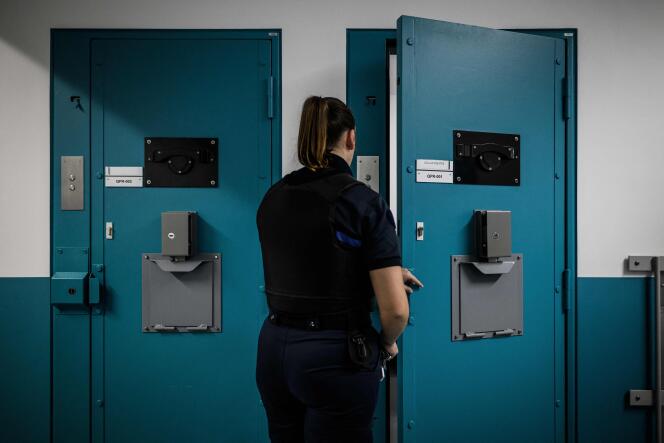


This used to be the nursery in Roanne prison. It is now a special section of the facility that tackles radicalization – "quartier de prise en charge de la radicalization" or "radicalisation support area" (QPR). It has been designed to receive female jihadists, including the approximately 50 "returnees" repatriated to France from Syria between July 2022 and July 2023 by French authorities. It comprises 14 new cells completely isolated from the rest of the prison in this town northwest of Lyon.
The QPR is the second in the country reserved for women, following the opening in September 2021 of a similar 16-place unit in Rennes. There are already six centers of this type for men in France, including one specializing in preparation for release from detention.
The Roanne center will welcome its first female inmates in the last week of January. "We will initially be taking in four women," said Sylvie Marion, a former head of the Auvergne-Rhône-Alpes inter-regional unit for combating violent radicalization, who recently took over the management of Roanne prison. "On completion of the renovations on December 21, 2023, representing an investment of more than €1 million, this part of the women's building was sealed off from the rest of the facility in terms of sound, and visual and physical impact."
To access it, you must pass through an octagonal interlock, which leads to a corridor lined with cells with blue doors, on either side of the gray-floored aisle. One is equipped to accommodate disabled inmates.
At the far end of the QPR is a room equipped with a screen for family or legal videoconferencing, and a small library next door. A collection of hadiths (sayings of the Prophet Muhammad) from the Quran sits alongside a biography of French astronaut Thomas Pesquet, a Scrabble game, a book on Algerian cuisine, La Laïcité pour les nuls ("Secularism for Dummies") and Femme, Vie, Liberté (Woman, Life, Freedom) a graphic novel by French-Iranian writer Marjane Satrapi. A separate exercise yard and meeting rooms are also available.
"Radicalized inmates have access to the same services as the others, whether in terms of care, family living units, walks, sports or phone services," said Manon Roy, deputy director of the facility – this despite the tight seal put in place between the unit and the rest of the detention center, which has some 600 inmates, mostly serving long sentences.
The women will, however, be kept under closer surveillance, with no fewer than 12 female wardens and three female supervisors, as well as a reference officer, all volunteers, for every 14 inmates. Telephone and postal exchanges will be monitored, and prison intelligence resources will be involved.
You have 60% of this article left to read. The rest is for subscribers only.
